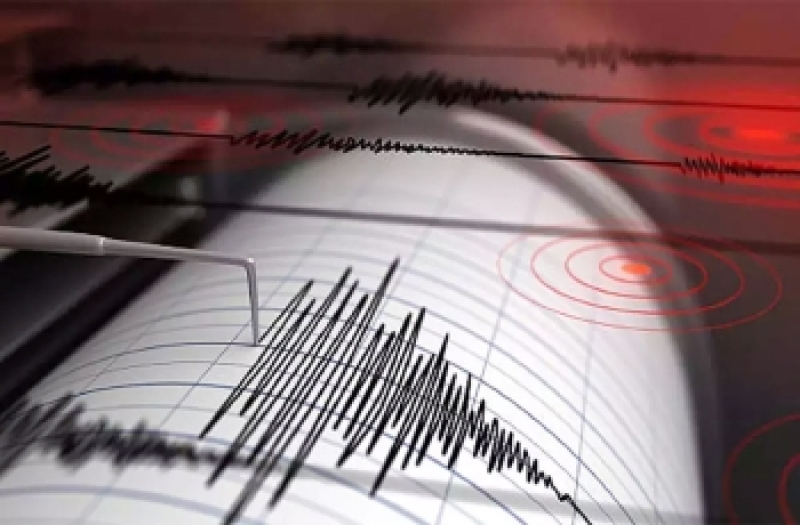- Puppet show enchants Children as Boi Mela comes alive on day 2 |
- DSCC Admin Salam’s drive to make South Dhaka a ‘clean city’ |
- 274 Taliban Dead, 55 Pakistan Troops Killed |
- Now 'open war' with Afghanistan after latest strikes |
- Dhaka's air quality fourth worst in world on Friday morning |
Most Bangladesh cities unprepared for earthquakes, says IPD

Earthquake
Dhaka, March 30 – The Institute for Planning and Development (IPD) has stated that most of the major, medium, and small cities, including Dhaka and Chittagong, are completely unprepared to handle the consequences of an earthquake disaster.
In a press release sent to the media, the IPD emphasized that the recent 7.7 magnitude earthquake in Myanmar on Friday (March 28) and its impact on surrounding countries and regions has once again highlighted the lack of earthquake preparedness in Bangladesh’s cities, along with the tendency to ignore building codes, master plans, and land use zoning in construction practices.
The IPD noted that several small earthquakes in different parts of Bangladesh in recent years have indicated the possible occurrence of a larger earthquake, yet the country's preparedness for such natural disasters remains almost nonexistent. The organization has urged the interim government to take appropriate measures to mitigate earthquake risks before any major damage occurs.
The IPD also criticized the interim government for not establishing any commissions to address planned urbanization, sustainable housing, and building safety, despite several reform commissions set up after the July popular uprising. The lack of focus on these critical issues has been deemed concerning by the organization.
The IPD’s statement pointed out that, under pressure from real estate developers, the government has allowed haphazard multi-story building construction in Dhaka, especially in areas where proper planning and disaster preparedness are not prioritized. It mentioned that open spaces, such as parks, playgrounds, and gardens, needed for shelter during disasters, have not been incorporated into urban planning discussions, while even the Panthakunja Park – the only available open space for disaster shelter in the Kathalbagan area – has not been protected, despite a social movement for its preservation.
The statement further highlighted corruption allegations against officials in the Rajdhani Unnayan Kartripakkha (RAJUK) and the Ministry of Housing and Public Works, who have been accused of colluding with real estate developers to approve unregulated buildings and later legitimizing them through revisions to the master plan.
The IPD warned that the recent unregulated approvals for construction in narrow streets and near water bodies, without considering structural and fire safety, could significantly increase earthquake risks in Dhaka. The organization also criticized the government's failure to address these issues despite repeated concerns raised by citizens, professionals, and urban planners.
Furthermore, the IPD suggested that the land-use planning for Dhaka should consider the area's geological structure and characteristics when determining building sizes and land usage. The rise of multi-story buildings on weak soil, especially in flood-prone areas and water bodies, has heightened the risk of significant damage during a future earthquake.
Echoing recent trends observed in Turkey’s earthquake, the IPD stressed the need for comprehensive urban planning that takes into account area-based differences in building heights and floor-area ratios (FAR). The organization condemned the recent proposals in Dhaka’s Detailed Area Plan (DAP) for applying the same FAR standards across the entire city, which does not align with global urban planning practices.
In its press release, the IPD warned that if these self-destructive trends continue, even a moderate earthquake with an epicenter near Dhaka could cause widespread loss of life and property, especially among low and middle-income communities, similar to the devastation caused by the earthquake in Haiti.
To mitigate the risks of an earthquake disaster in Dhaka and other urban areas, the IPD has proposed ten key recommendations:
1. Establish a city planning and management commission to ensure the safety of life in urban areas.
2. Form the Bangladesh Building Regulatory Authority (BBRA) for the implementation of the Bangladesh National Building Code (BNBC).
3. Develop urban land-use planning and master plans that account for the geological structure and characteristics of the land.
4. Identify at-risk buildings and implement retrofitting or strengthening measures, and in necessary cases, rebuild them.
5. Create earthquake preparedness strategies considering the building characteristics and regional differences in low-income, middle-income, and high-income areas.
6. Prohibit multi-story building construction in narrow streets and on water bodies, and ensure regular maintenance and oversight of utility services like gas and electricity.
7. Create and preserve area-based parks, gardens, playgrounds, and open spaces for emergency shelters during disasters.
8. Ensure that life and property safety are prioritized over business interests in the formulation of master plans, building codes, and fire safety regulations.
9. Strengthen the building construction and planning oversight capacities of development authorities, city corporations, and municipalities.
10. Engage communities and ensure coordinated efforts among various government agencies to reduce earthquake risks.- UNB

